As the UK's first contactless payment scheme rolls out across London, C-Store asks if the grab-and-go system will catch on
For the thousands of commuters swarming around Waterloo Station every weekday there's very little to look forward to but the comforts of a newspaper, a quick snack and perhaps a cup of coffee as they
shuffle through the morning gloom.
But the pace of life in the capital is such that if they see a queue in their local c-store or CTN they won't stop - there's always another up the street in any case.
So the concept of instantaneous cashless payment, now available in some 3,000 shops and cafés in central London, suits many commuters down to the ground. Visa's payWave and Mastercard's Pay Pass are among the credit cards that can be passed over the
scanner of a small countertop terminal to instantly register purchases up to a limit of £10. The retailer enters the amount into the handset, and the customer scans their card and is away in a matter of seconds.
Retailers involved in the trial have greeted the new technology with cautious optimism.
"I think it's a really good idea for very busy stores like ours," says Muhammad Farooq, manager of the Costcutter at The Cut in Southwark. "We're right opposite the Underground station and people don't hang around when they come in in the morning; they want a paper, a snack, and away they go."
Mahesh Patel of Denny's newsagent around the corner takes a similar view. "We're in a business area and everyone's always in a hurry. If they all had these cards it would add to our turnover and ease congestion at the busiest time of the day. We're very close to Waterloo Station so it's all about high volume traffic."
The credit card companies say they are responding positively to the need for speed. Visa Europe's recent Time in Motion study revealed that the average London commuter wastes up to three days each year paying for low value items with cash. They spend a remarkable 10 hours, 41 minutes and 19 seconds a year at the grocery checkout, time which, Visa says, could be spent elsewhere if they could simply flash the plastic.
In the early stages of the rollout, the retailers we visited reported one small snag - no one seems to have the cards.
Muhammad Farooq said he only sees two or three a week in his Costcutter, while the smaller Denny's outlet only saw two cards in the first three weeks they had the kit. And as anything that demands to be front-and-centre on a c-store counter has to pay its way, both retailers have moved the units out of the public eye, which rather defeats the object of speeding up the transaction. There's no in-store or window signage to alert customers to the contactless terminal either, and consumer awareness has tailed off after a high-profile launch late last year.
So it's clearly early days, and public acceptance may be a little while coming yet. Perhaps their reluctance stems from a distrust of the security of the system. The banks say that customers will be asked for a PIN in one of every 10 or 15 transactions, which, with the £10 upper limit, should limit the cardholder's losses if the card is stolen - but an
average loss of £75 is still significant.
Ron Delnevo, of Bank Machine, which as an ATM manufacturer possibly has more to lose than most from the death of cash, quotes a YouGov survey which shows that 70% of the public believe that the contactless card will increase the likelihood of fraud, and only 15% said that they were 'very likely' to use them.
"Individuals will be forced to accept the security risks despite the fact that our research has shown that 40% would rather have the opportunity to deactivate the contactless feature," he adds.
Also coming out for cash is the British Retail Consortium (BRC), which accuses card companies of pushing cashless payment methods as a way of
boosting their own revenue, and claims that the average £20 cash transaction costs a retailer under 4p while a £20 credit card sale costs at least 17p.
There are cautionary tales, too, from the US, where contactless payment is widespread. In 2006, card fees cost the US c-store industry $6.6 billion, its second largest outgoing after staff costs, and more than its combined profit of $4.8 billion.
It's the issue of fees to the retailer that troubles the Southwark shop owners involved in the London trial. "It will definitely make life easier for retailers in the long run, but I'm worried about the level of commission charged by the banks. It's bound to get higher as the scheme goes nationwide," says
Muhammad Farooq.
Peter Wagg, who has several stores in London's business heart at Canary Wharf, also sees trouble ahead if the scheme extends to debit cards. "As a retailer with an average customer spend of around £2 and a gross profit margin of 20%, I only take credit and debit card transactions for over £10 to cover the charges of 1.5% for credit cards and 14p per transaction for debit cards," he says.
"I am advised that the banks' transaction charges will be the same as for credit and debit cards. So while I have no problem accepting the contactless credit card rate of 1.5% on smaller transactions, it would not be commercially viable to pay 14p per transaction on debit cards if the gross profit on a transaction is just 40p."
Omar Rifaat, head of Visa payWave, says that the company is in the process of evaluating feedback on the rollout, which he stresses is still in its early stages. Its advantages will become clearer as more contactless-enabled cards become available, he says. "We've had plenty of positive feedback, and it's clear from the takeup elsewhere in Europe that once retailers get sufficient volume of transactions, they love payWave - so the proposition is right."
Rifaat says that the cost of installation will depend on each retailer's circumstances but adds: "It's normal for a new product of this kind to take some time to get established, and I would say to retailers, don't jump straight to the cost before you consider the benefits."
Does going contactless make us faceless? In a business which is about relationships and personality, the c-store's point of difference is the warmth of its welcome and the breadth of its smile. Those few seconds of chat over a cash transaction may be too valuable to lose. "Personally I like the idea, for small transactions," says Mahesh Patel. "But I'm not sure the cashless system would be as effective in a community where loyalty is built on customer relations."
With the banks promising us five million cards in circulation by the end of next year, it looks as if we're about to find out just how important that contact really is.
Advantages to retailers
Card payment transactions of £10 and under in less than a second
No authorisation, signature or PIN required
Reduced queues, allowing you to serve more customers
Loyalty of card users
Higher spend from customers not limited by the change in their pocket
Same secure network as chip and PIN
Advantages to customers
They'll always have the correct change
They won't have to mess about with PIN numbers or signatures
They won't have to queue for so long
Transactions will be faster
They can see where they've spent their money
Source: Visa
For the thousands of commuters swarming around Waterloo Station every weekday there's very little to look forward to but the comforts of a newspaper, a quick snack and perhaps a cup of coffee as they
shuffle through the morning gloom.
But the pace of life in the capital is such that if they see a queue in their local c-store or CTN they won't stop - there's always another up the street in any case.
So the concept of instantaneous cashless payment, now available in some 3,000 shops and cafés in central London, suits many commuters down to the ground. Visa's payWave and Mastercard's Pay Pass are among the credit cards that can be passed over the
scanner of a small countertop terminal to instantly register purchases up to a limit of £10. The retailer enters the amount into the handset, and the customer scans their card and is away in a matter of seconds.
Retailers involved in the trial have greeted the new technology with cautious optimism.
"I think it's a really good idea for very busy stores like ours," says Muhammad Farooq, manager of the Costcutter at The Cut in Southwark. "We're right opposite the Underground station and people don't hang around when they come in in the morning; they want a paper, a snack, and away they go."
Mahesh Patel of Denny's newsagent around the corner takes a similar view. "We're in a business area and everyone's always in a hurry. If they all had these cards it would add to our turnover and ease congestion at the busiest time of the day. We're very close to Waterloo Station so it's all about high volume traffic."
The credit card companies say they are responding positively to the need for speed. Visa Europe's recent Time in Motion study revealed that the average London commuter wastes up to three days each year paying for low value items with cash. They spend a remarkable 10 hours, 41 minutes and 19 seconds a year at the grocery checkout, time which, Visa says, could be spent elsewhere if they could simply flash the plastic.
In the early stages of the rollout, the retailers we visited reported one small snag - no one seems to have the cards.
Muhammad Farooq said he only sees two or three a week in his Costcutter, while the smaller Denny's outlet only saw two cards in the first three weeks they had the kit. And as anything that demands to be front-and-centre on a c-store counter has to pay its way, both retailers have moved the units out of the public eye, which rather defeats the object of speeding up the transaction. There's no in-store or window signage to alert customers to the contactless terminal either, and consumer awareness has tailed off after a high-profile launch late last year.
So it's clearly early days, and public acceptance may be a little while coming yet. Perhaps their reluctance stems from a distrust of the security of the system. The banks say that customers will be asked for a PIN in one of every 10 or 15 transactions, which, with the £10 upper limit, should limit the cardholder's losses if the card is stolen - but an
average loss of £75 is still significant.
Ron Delnevo, of Bank Machine, which as an ATM manufacturer possibly has more to lose than most from the death of cash, quotes a YouGov survey which shows that 70% of the public believe that the contactless card will increase the likelihood of fraud, and only 15% said that they were 'very likely' to use them.
"Individuals will be forced to accept the security risks despite the fact that our research has shown that 40% would rather have the opportunity to deactivate the contactless feature," he adds.
Also coming out for cash is the British Retail Consortium (BRC), which accuses card companies of pushing cashless payment methods as a way of
boosting their own revenue, and claims that the average £20 cash transaction costs a retailer under 4p while a £20 credit card sale costs at least 17p.
There are cautionary tales, too, from the US, where contactless payment is widespread. In 2006, card fees cost the US c-store industry $6.6 billion, its second largest outgoing after staff costs, and more than its combined profit of $4.8 billion.
It's the issue of fees to the retailer that troubles the Southwark shop owners involved in the London trial. "It will definitely make life easier for retailers in the long run, but I'm worried about the level of commission charged by the banks. It's bound to get higher as the scheme goes nationwide," says
Muhammad Farooq.
Peter Wagg, who has several stores in London's business heart at Canary Wharf, also sees trouble ahead if the scheme extends to debit cards. "As a retailer with an average customer spend of around £2 and a gross profit margin of 20%, I only take credit and debit card transactions for over £10 to cover the charges of 1.5% for credit cards and 14p per transaction for debit cards," he says.
"I am advised that the banks' transaction charges will be the same as for credit and debit cards. So while I have no problem accepting the contactless credit card rate of 1.5% on smaller transactions, it would not be commercially viable to pay 14p per transaction on debit cards if the gross profit on a transaction is just 40p."
Omar Rifaat, head of Visa payWave, says that the company is in the process of evaluating feedback on the rollout, which he stresses is still in its early stages. Its advantages will become clearer as more contactless-enabled cards become available, he says. "We've had plenty of positive feedback, and it's clear from the takeup elsewhere in Europe that once retailers get sufficient volume of transactions, they love payWave - so the proposition is right."
Rifaat says that the cost of installation will depend on each retailer's circumstances but adds: "It's normal for a new product of this kind to take some time to get established, and I would say to retailers, don't jump straight to the cost before you consider the benefits."
Does going contactless make us faceless? In a business which is about relationships and personality, the c-store's point of difference is the warmth of its welcome and the breadth of its smile. Those few seconds of chat over a cash transaction may be too valuable to lose. "Personally I like the idea, for small transactions," says Mahesh Patel. "But I'm not sure the cashless system would be as effective in a community where loyalty is built on customer relations."
With the banks promising us five million cards in circulation by the end of next year, it looks as if we're about to find out just how important that contact really is.
What's on the cards
Advantages to retailers
Card payment transactions of £10 and under in less than a second
No authorisation, signature or PIN required
Reduced queues, allowing you to serve more customers
Loyalty of card users
Higher spend from customers not limited by the change in their pocket
Same secure network as chip and PIN
Advantages to customers
They'll always have the correct change
They won't have to mess about with PIN numbers or signatures
They won't have to queue for so long
Transactions will be faster
They can see where they've spent their money
Source: Visa



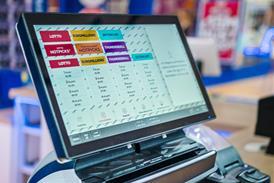






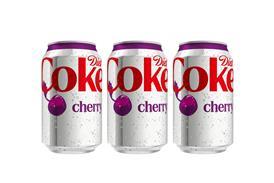
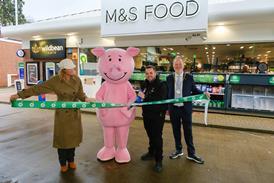
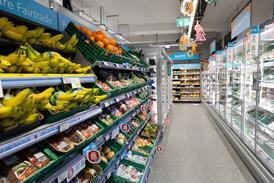









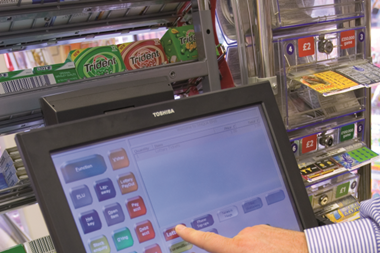


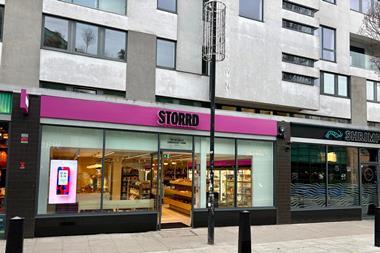
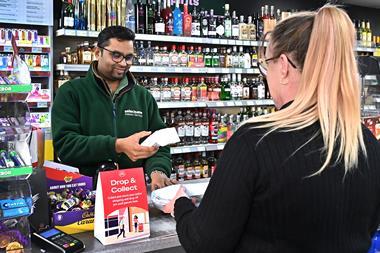


No comments yet